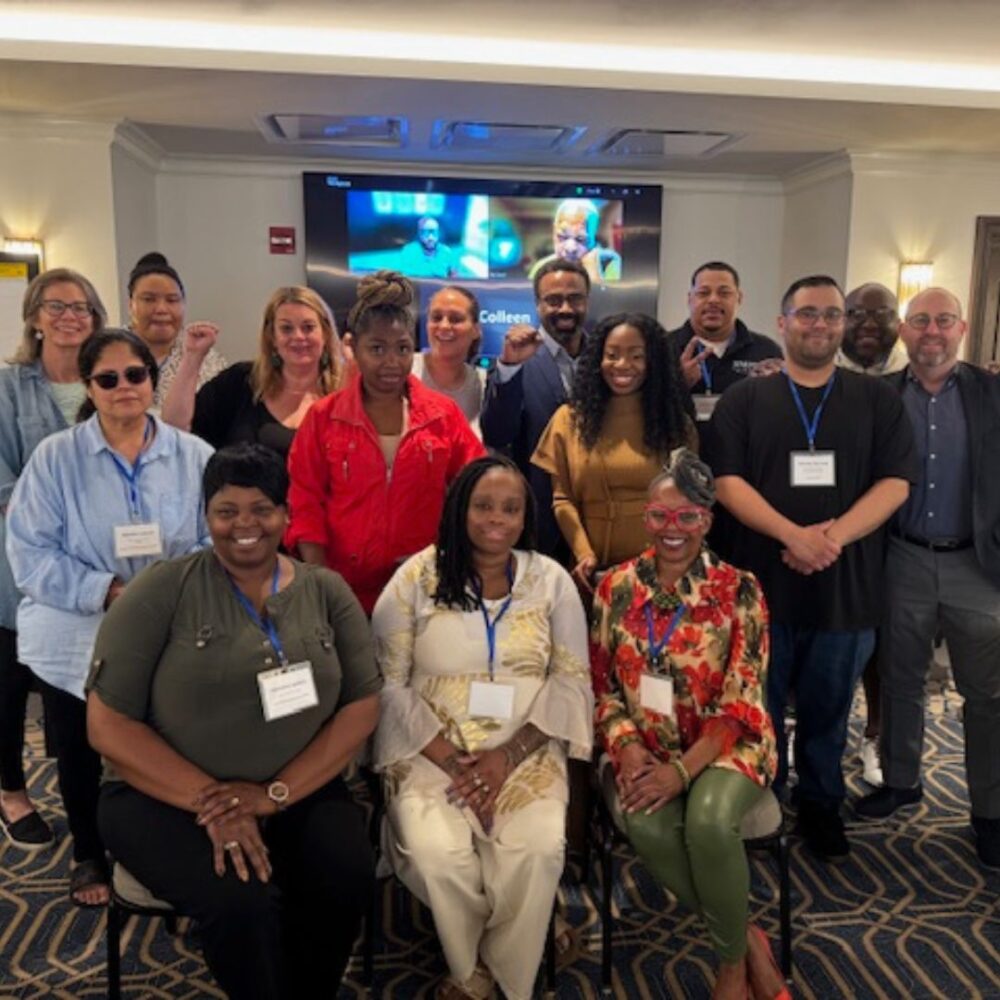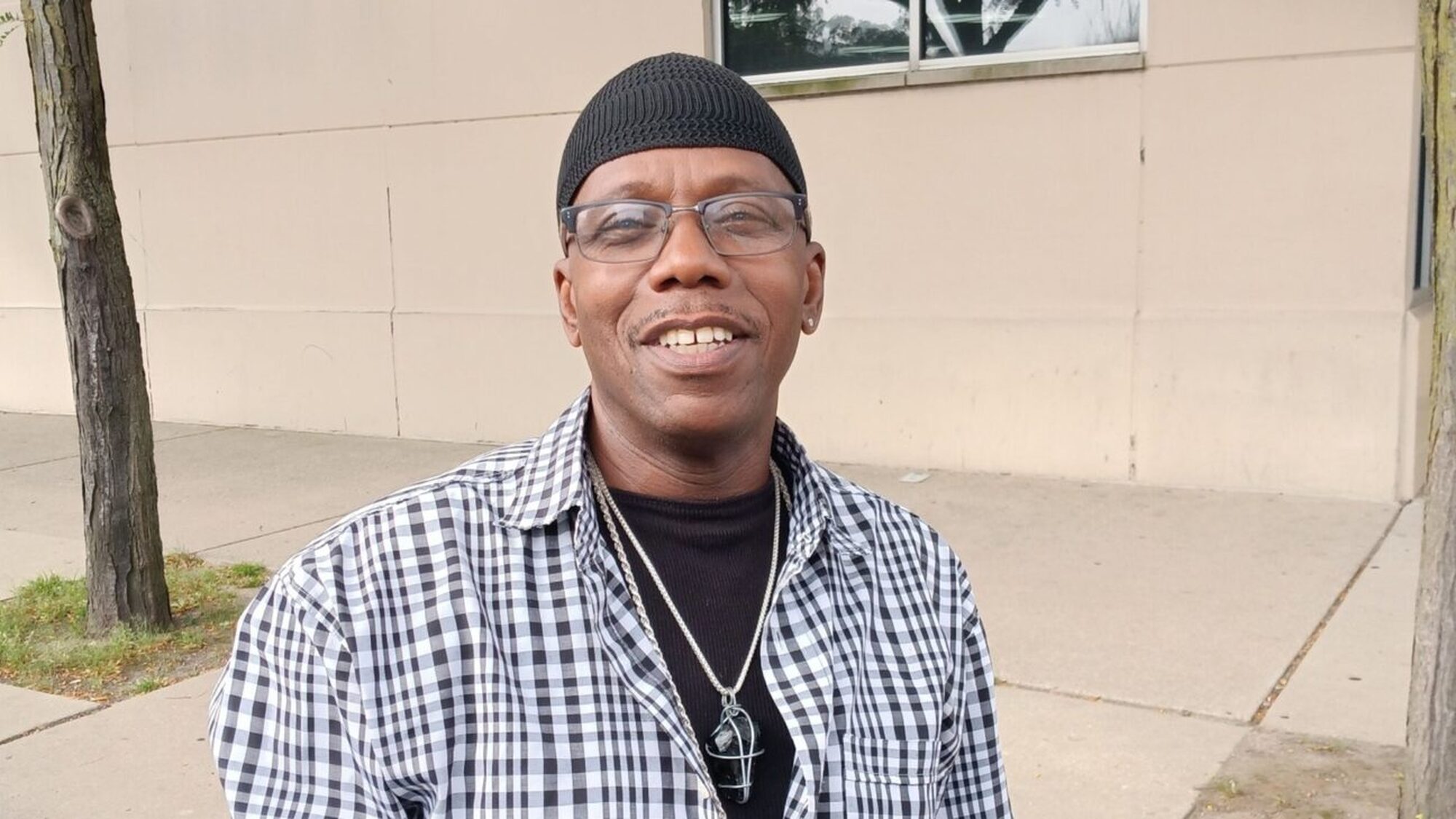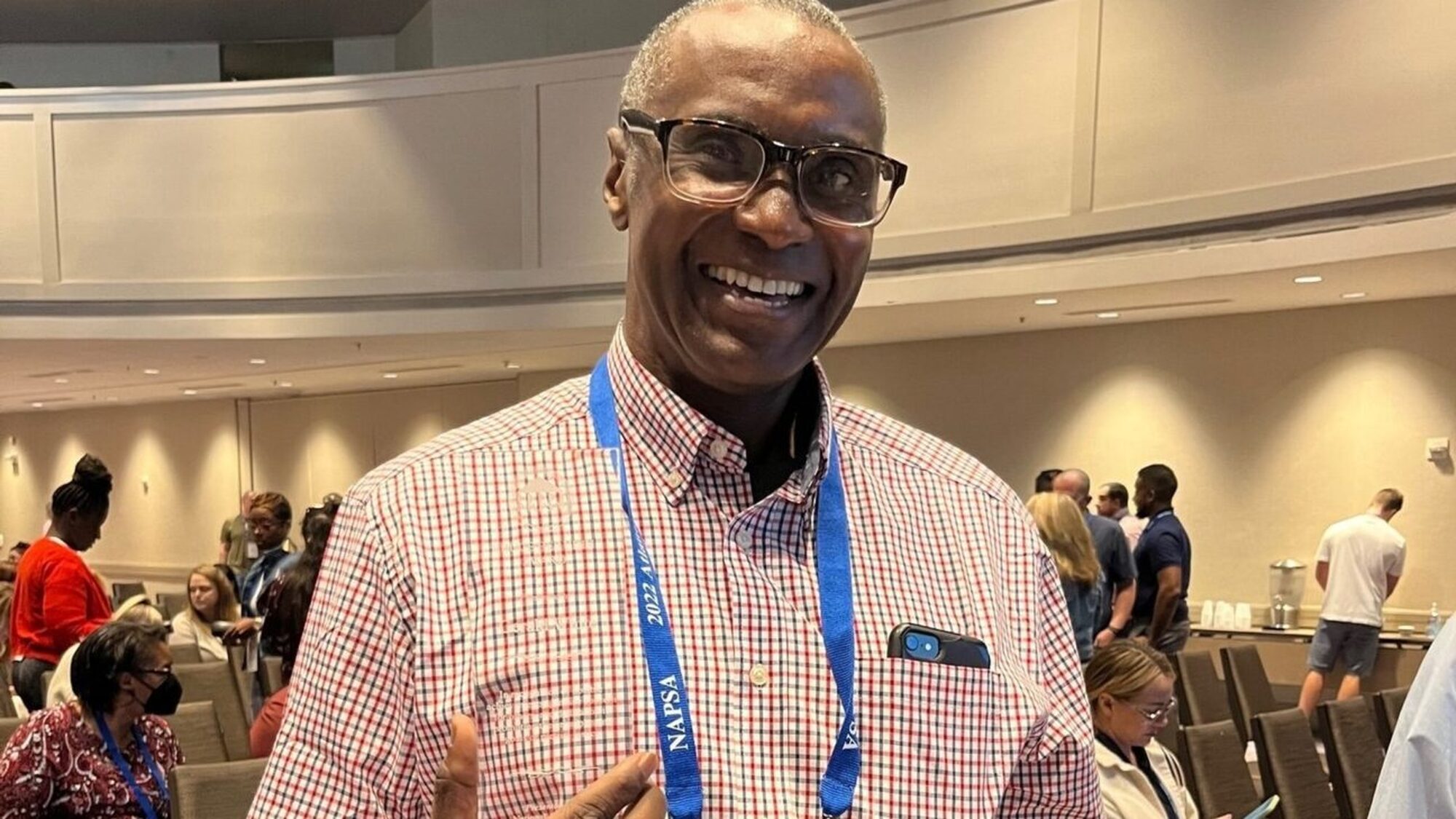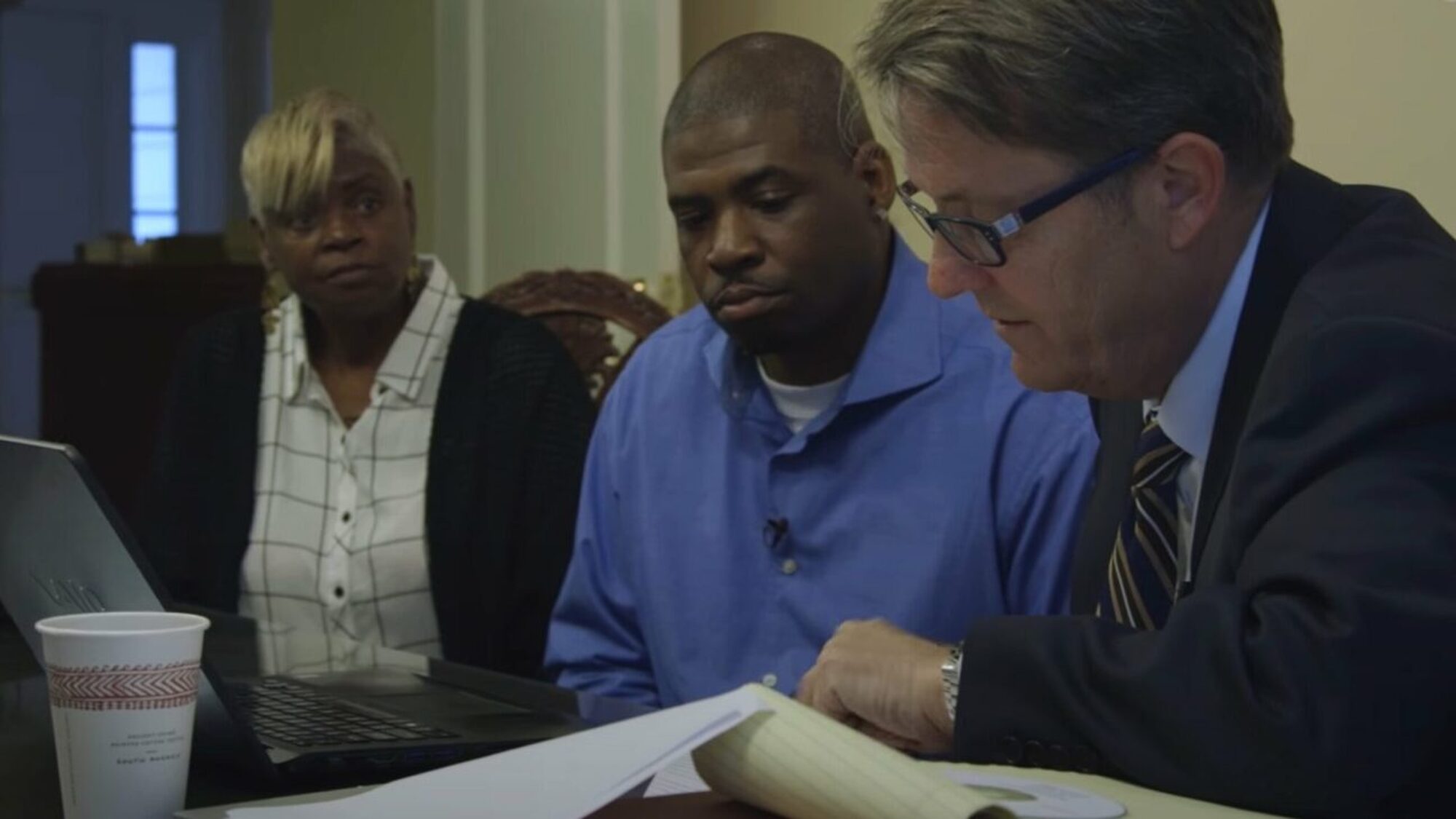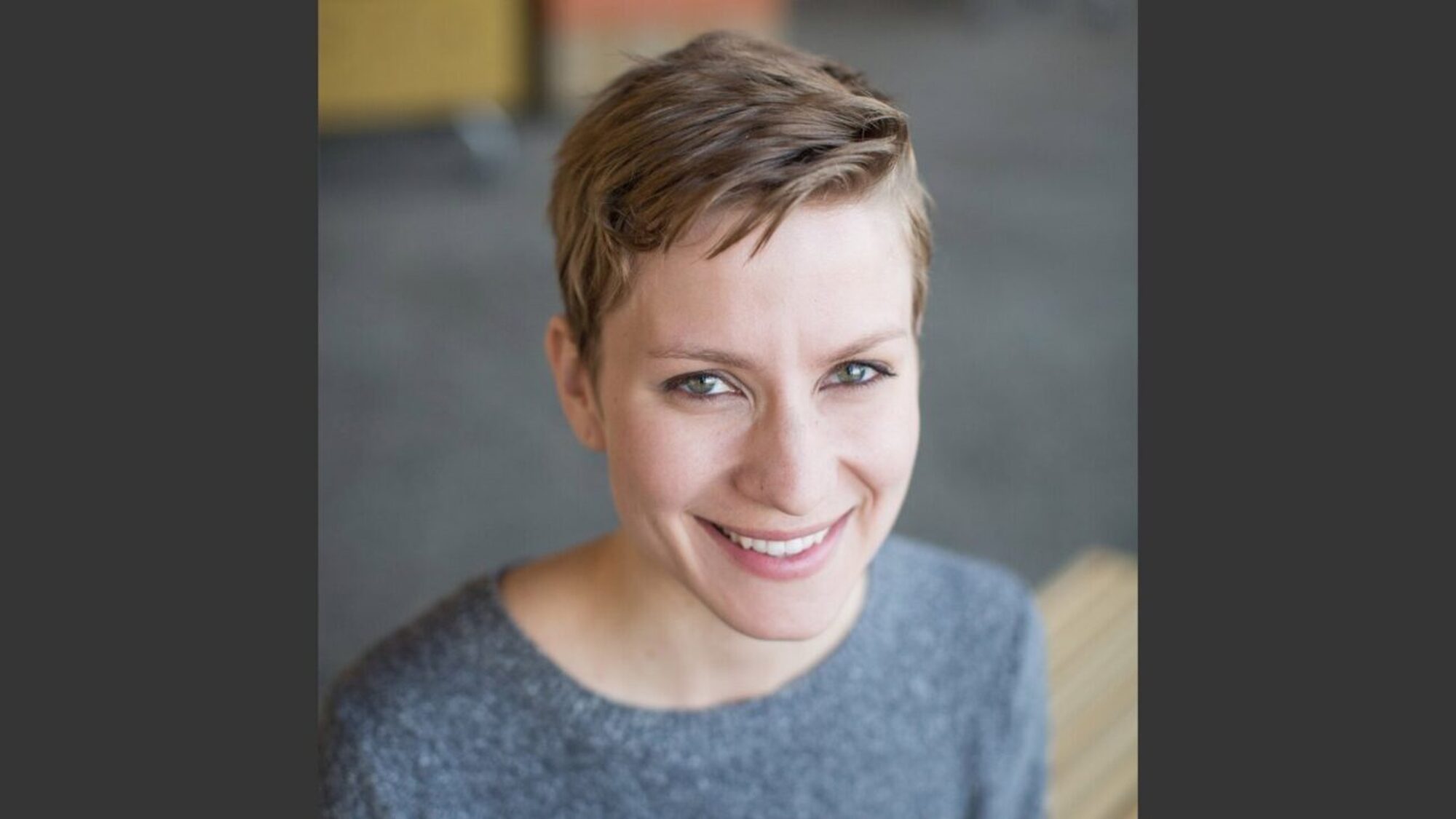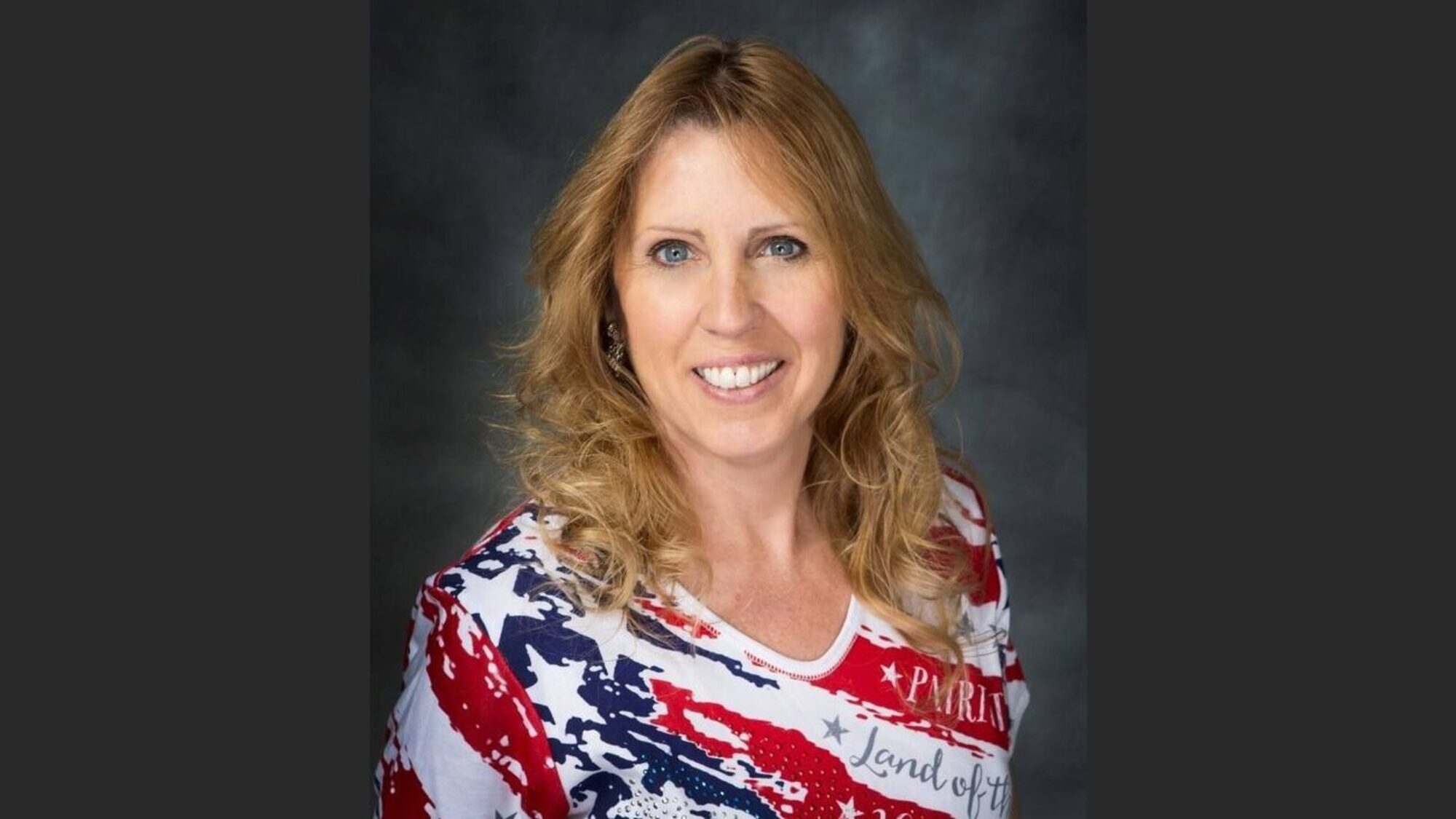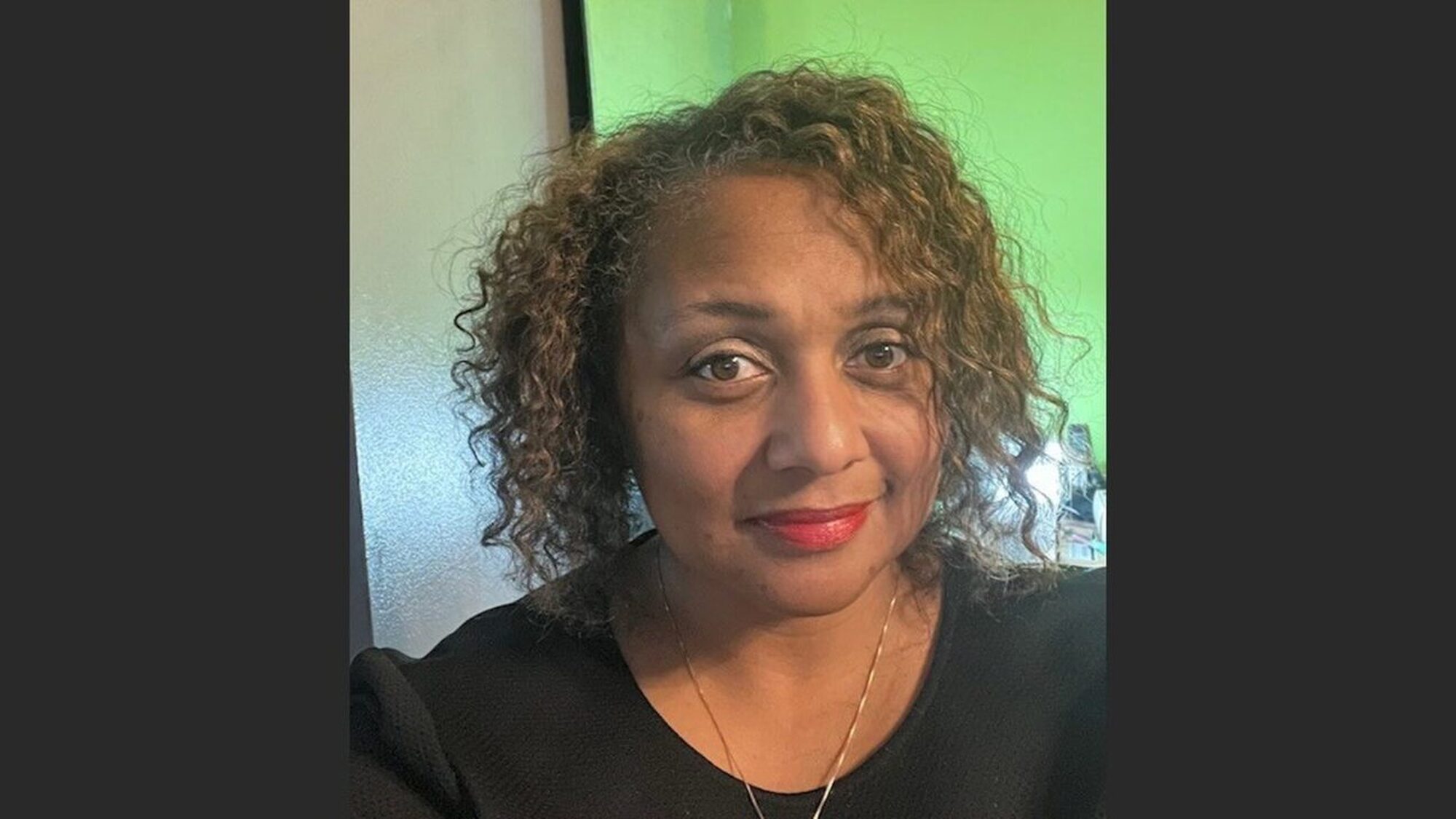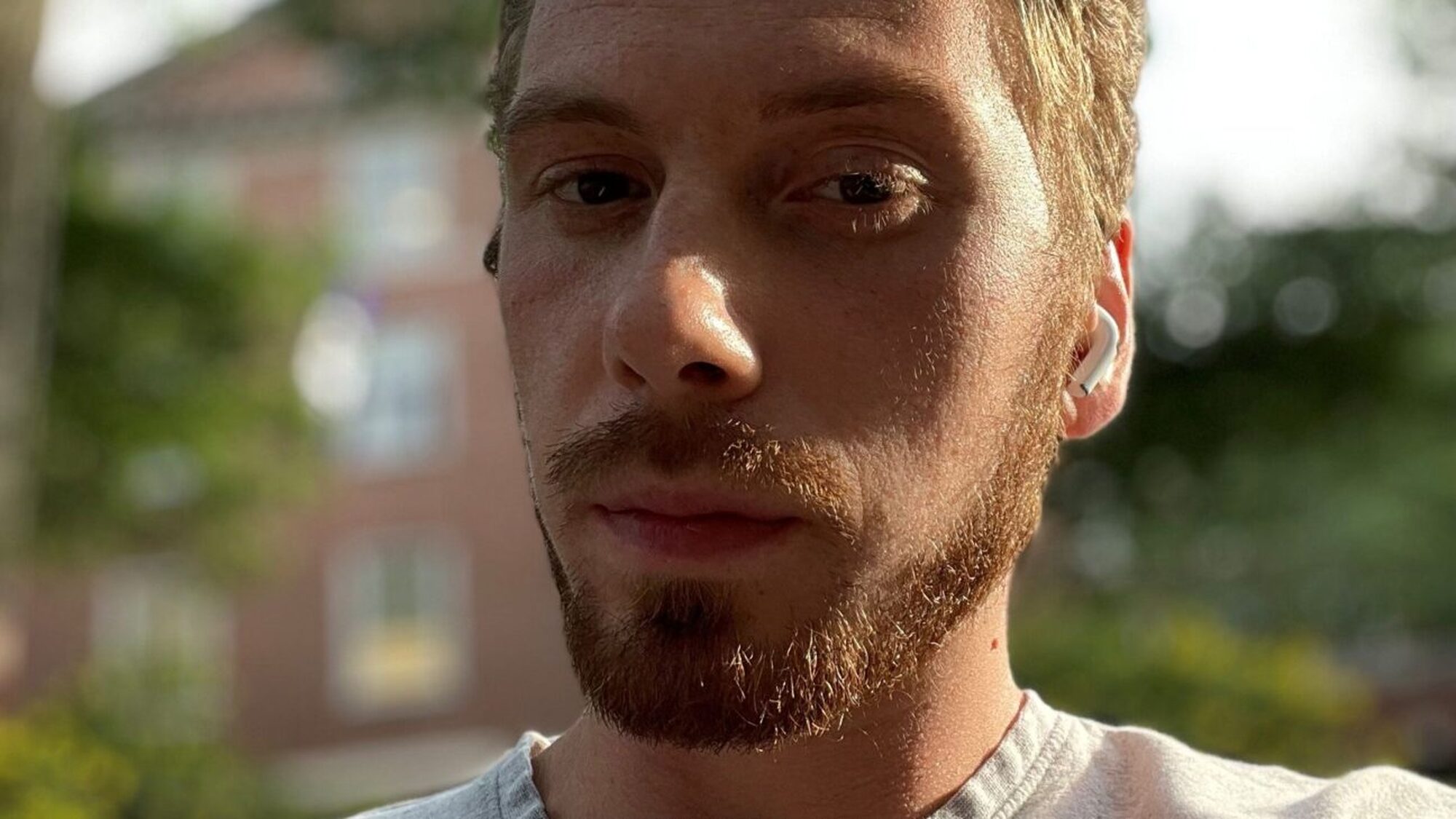Why Peers?
Across the country, pretrial systems are strained. In some places, pretrial services staff manage caseloads of up to 900 people. They are often unable to meet people’s basic needs like housing, transportation, and mental health. People often feel overwhelmed and unsupported, and they lack stability. As a result, they often miss court appearances. In fact, one in six felony cases has at least one missed court appearance during the course of the case. Programs rooted in punishment, not support, worsen outcomes. Missing court appearances isn’t just a compliance issue; it’s a health and access issue.
Download a PDF of this fact sheet by clicking the button on the right.
Peers Show the Way
Peer support roles vary by state, agency, and setting, but their purpose is consistent: to walk alongside people navigating complex systems. Peer supports provide guidance rooted in their own experience, fill service gaps, reduce confusion, and help people move forward when the system feels too overwhelming to face alone.
![]()
Court Navigator
![]()
Recovery Coach
![]()
Reentry Specialist

Peer Mentor
![]()
Forensic Peer
Guidance and Navigation
Peer supports empower people to advocate for themselves and navigate complex systems—from court to treatment and recovery. They meet people where they are and guide them forward.
![]() Case Management: Navigating services and connecting to resources
Case Management: Navigating services and connecting to resources
![]() Therapeutic Interventions: Providing supportive counseling and facilitating groups
Therapeutic Interventions: Providing supportive counseling and facilitating groups
![]()
Pretrial Navigation: Assisting with court conditions and compliance
![]() Reentry Coordination: Supporting the transition from incarceration back into the community
Reentry Coordination: Supporting the transition from incarceration back into the community
![]() Primary Care Support: Engaging with healthcare services
Primary Care Support: Engaging with healthcare services
![]() Crisis Intervention: Responding to urgent situations or mental health crises
Crisis Intervention: Responding to urgent situations or mental health crises
Shaping the Future of Justice
Peer support began in behavioral health and addiction recovery. Today, peers step into courts, reentry programs, jails, and even policy roles. In Duluth, Minnesota, a single post-overdose outreach role expanded into a team supporting people on probation, in custody, and returning home after incarceration. In Arizona, peer certification is standardized through the state’s Medicaid agency.
Examples of Peer Support Programs
- Mundelein, Illinois: Drug treatment referrals
- Madison, Wisconsin: Credible messengers assisting law enforcement officers
- Austin, Texas: Homeless outreach teams
- Wayne County, Michigan: Mental health court program
Today, peers aren’t just showing up in support roles; they’re shaping the very systems they once struggled to navigate.
Lived Experience
Before peers could support others, they had to first survive the system themselves. For many, pretrial was the most confusing and destabilizing part of their involvement in the justice system.

“One of the hardest things for me was the sheer uncertainty. Every day felt like being stuck in limbo…just waiting for court dates that kept getting pushed back. I saw so many people struggling with the legal system itself. It’s incredibly confusing, especially if it’s your first time in.”
Reentry
Returning to the community from jail or prison can be a complex and frustrating process. Coming home doesn’t mean coming back to stability. For many, reentry is a maze of unmet needs, and for those on pretrial supervision, the pressure is immediate.

“What I have seen help people who are justice-involved is being listened to by someone who understands how the justice system works. They are able to offer real-time solutions and resources. An essential element for supporting people during a high-risk or transitional situation is letting that person know that you care about them. As a person in recovery, I believe that a peer’s role is to model recovery expectations and talk about what it looks like to live them out. Being a living example of what recovery looks like often speaks volumes and breaks down boundaries that words cannot.”
Recovery & Stability
Rebuilding your life takes more than compliance; it takes support, relationships, and time. This phase is where many begin to find hope and momentum.

“My journey to helping those involved in the justice system began after my brother was wrongfully sentenced to 15 years following an unfair trial. As the supervisor of SNUG Street Outreach in Poughkeepsie, New York, my role involves leading a team dedicated to reducing gun violence by identifying and supporting people at the highest risk of becoming either shooters or victims of shootings.”
Peer Support
For some, healing becomes purpose. They turn their experience into a tool, using it to help others navigate court, probation, housing, and recovery.

“What inspired me to be a peer support specialist was seeing how fast my peer got me connected to training at no cost, regular counseling sessions, and a job within days of me getting my certification. Because I’m on probation myself, I can help clients better understand their terms and build more productive relationships with their legal AND clinical supports.”
Professional Integration
Many peers are doing more than walking alongside clients; they’re sitting at the policy table. From national reform efforts to local policy improvements, their expertise is shaping the future of justice.

“We have to address structural problems that limit good choices for both system actors and those caught up in the system. To agencies hesitant about integrating peer supports, I’d say: Sometimes the ‘how’ matters a lot to the outcome, and peer supports are how we can create a better functioning system for all parties involved.”
Peer supports have walked the hardest roads, and now they’re lighting the way. It’s time to take the next step. And they need your help. Support their presence in pretrial programs, invite their expertise into policy spaces, and help build systems that truly reflect the people they serve.
Acknowledgments
Thank you to the Center for Effective Public Policy’s Justice Policy Consultants, all of whom have lived experience of the justice system, for their time, expertise, and dedication to this project.
About the Authors and Contributors
Michael Beltran is a peer support specialist and behavioral health technician who draws on his own experience in the justice system to support others impacted by it. He also facilitates trainings on opioid use and forensic topics for mental health professionals and advocates for fairness and dignity in the justice system. He currently works for The Bail Project as a client support specialist, based in Phoenix, Arizona.
Daniel A. Rosen is a justice reform advocate and writer. He is the cofounder of the Coalition for Carceral Nutrition, and previously worked as a campaign manager for Worth Rises, a nonprofit working to dismantle the prison industry. Prior to incarceration, Daniel spent almost 20 years in public service in nonprofit and governmental sectors, including serving at the Departments of State and Defense. Daniel holds a master’s degree from Tufts University and a BA with Honors from UCLA.
Shahiem Smith currently serves as the Outreach Worker Supervisor for SNUG Street Outreach programs. Born and raised in Poughkeepsie, New York, Shahiem grew up in communities facing significant challenges, which fueled his passion for giving back and making a positive impact. Shahiem’s personal experiences have driven him to work toward addressing disparities within the system. He takes great joy in connecting with young people and guiding them toward alternatives to high-risk activities, demonstrating his unwavering commitment to nurturing their potential and creating positive change within his community.
Stanley Feliciano leverages his seven years in the system to fuel his passion for social justice. While incarcerated, he earned an Associate’s degree in Human Services and co-wrote a gardening curriculum with the Sustainability in Prisons Project. He also facilitated peer support groups, focusing on coping with incarceration and on LGBTQ+ advocacy. Stanley brought with him the unique perspective of being a Child of a Deaf Adult, and he advocates for the incarcerated deaf population. Currently, he volunteers with Black and Pink, an organization that advocates for and provides penpal services to incarcerated LGBTQIA+ people.
Ashia Wilson is a mother, author, podcast host, and advocate for returning citizens and people experiencing homelessness. She began her advocacy work with Nation Outside, later served as Program Coordinator at Northwest Initiative, and was the Manager of Authentic Engagement at the Michigan Coalition Against Homelessness. Guided by her belief that everyone deserves a second chance, she continues to drive change through policy, service, and storytelling.
Kyle Colleen Black is a licensed peer support and addiction mentor. Her desire to help people led to her employment as a Policy and Outreach Associate at the Oregon Justice Resource Center, a nonprofit law firm that prioritizes providing accessible legal representation and services to community members affected by poverty, bias, disparity, and the carceral system.
Expanded Quotes
Lived Experience
What barriers or challenges did you face while incarcerated or awaiting court?
Stanley Feliciano: One of the hardest things for me was the sheer uncertainty. Every day felt like being stuck in limbo….just waiting for court dates that kept getting pushed back. I couldn’t plan anything, and that constant unknown was incredibly draining, both mentally and emotionally. It was also really tough to stay connected with my family while I was inside. Phone calls were expensive and short, and visits were difficult to arrange. I worried constantly about them, and feeling so disconnected added to the isolation. And, honestly, the lack of control over even the smallest things—when you ate, when you slept, even when you could get fresh air—was maddening. It really wears you down.
What support did you observe others needing in the pretrial phase?
Feliciano: I saw so many people struggling with the legal system itself. It’s incredibly confusing, especially if it’s your first time in. And if you don’t have a good lawyer, or any lawyer at all, you’re pretty much on your own. I watched people miss crucial deadlines or agree to things they didn’t fully understand because they didn’t have the adequate representation. Another huge one was bail. I saw so many people—who probably weren’t a risk to the community—stuck behind bars for weeks or months just because they couldn’t afford a few hundred dollars for bail. That truly impacted their jobs, their families, and their mental health.
Lastly, as a CODA (Child of a Deaf Adult), I distinctly remember how incredibly difficult it was for deaf people to navigate everything. There was a desperate lack of qualified sign language interpreters in court, during booking, in holding, or even just to communicate basic needs, which left me taking on the responsibility of advocating for them. It was heartbreaking to see them struggle to understand what was happening to them. Without proper means of communication, they were unable to properly advocate for themselves or even understand directives. They were often completely isolated due to these communication barriers.
So, I can say that there was a desperate need for better information, fairer access to release, and, most definitely, accessible communication for all, especially for the Deaf community.
What helped you begin rebuilding after your justice involvement?
Feliciano: The most powerful thing was the support of my family, a few key mentors, and some angels in the community. They didn’t judge me; they just believed in me and reminded me that I was more than my past. That encouragement combined with finally getting some mental health support (from a few organizations) to process everything truly helped me start to see a path forward. It was a slow process, but those pieces were the foundation.
Reentry
What helped you or your clients find stability after justice involvement?
Kyle Colleen Black: What I have seen help people who are justice-involved is being listened to by someone who understands how the justice system works and is able to explain the process in a digestible and supportive way. They also had the bandwidth to understand the dynamics and consequences of intersecting with the system and were able to offer real-time solutions and resources. Being heard and responded to in a meaningful way not only removes a lot of anxiety about the process but also helps people feel stable and capable of maneuvering through it with intention and a successful outcome.
In your role as a coach and advocate, how do you support people during high-risk or transitional moments?
Black: I was an Intake Mentor and a Survival Coach for over 20 of the 28 years I was incarcerated at Oregon’s only women’s correctional facility. Whether it is holding someone’s hand on the first day of incarceration, playing a card game through a window with a person on death row, or talking to someone who is contemplating suicide, an essential element for supporting people during a high-risk or transitional situation is letting that person know that you care about them. Also, providing them with a safe space to express their feelings and validating their right to feel the way they feel about an experience is crucial. If possible, so is moving towards a discussion about what next steps might look like or how the matter could be resolved. Making every effort to leave the person feeling supported and able to move forward safely is key.
What role do you believe peers play in helping others comply with or understand recovery expectations?
Black: As a person in recovery, I believe that a peer’s role is to model recovery expectations and to talk about what it looks like to live them out. Discussing the times that you said you were sorry or apologized and what behaviors you needed to change to show that you were sorry is important. Being a living example of what recovery looks like often speaks volumes and breaks down boundaries that words cannot. Abstinence, volunteering, kindness, and caring display not only compliance with what recovery expectations can consist of but show a life being lived to the fullest. Compliance for the sake of checking the box so it looks like a person is in recovery is the same as a dry drunk. Recovery is a lifestyle change that involves embracing a whole new belief system. It’s a 100% buy-in!
Recovery & Stability
What helped you or those close to you find stability after a loved one became involved in the justice system?
Shahiem Smith: My journey began after my brother was wrongfully sentenced to 15 years following an unfair trial. Witnessing the flaws and injustices within the legal system inspired me to advocate for change and ensure that others don’t face the same injustices my family did. Through my work, I aim to promote fairness, equality, and justice for all.
In your current role, how do you support youth or community members during high-risk periods?
Smith: As the supervisor of SNUG Street Outreach in Poughkeepsie, New York, my role involves leading a team dedicated to reducing gun violence by identifying and supporting people at the highest risk of becoming either shooters or victims of shootings. By offering essential services and opportunities for professional development, our goal is to help these people transform their lives, ultimately creating a safer community for everyone.
What role can peer support play in helping people comply with court or recovery expectations?
Smith: Peer support plays a critical role in aiding people to comply with court orders or recovery expectations. Those who have firsthand experience with the legal system or recovery process can offer valuable insights, practical advice, and emotional support. They can provide guidance, offer encouragement, and help people navigate the challenges and obstacles they may face, making them more likely to successfully adhere to court orders or maintain their recovery progress.
Peer Support
What inspired you to become a peer support specialist?
Michael Beltran: What inspired me to be a peer support specialist was seeing how fast my peer got me connected to training at no cost, regular counseling sessions, and a job within days of me getting my certification. My first job as a peer was offered to me, in their words, “because I just came out of prison.” Learning that my experience could be used to help others was one of the most redeeming things that could’ve ever happened to me.
How do you help people involved in pretrial systems meet conditions or avoid setbacks?
Beltran: I help people involved in the pretrial system meet conditions and avoid setbacks by providing case management services similar to those in behavioral health. I connect them to local agencies for housing, primary care, disability, mental health, and other essential services. I also offer mentorship and guidance with court navigation and community supervision. Because I’m on probation myself, I can help clients better understand their terms and build more productive relationships with their legal AND clinical supports.
What are the most impactful moments you’ve seen as a peer in this space?
Beltran: Some of the most impactful moments I’ve seen as a peer in this space have been while supporting those with mental illnesses or underlying health conditions. It’s a reality check when the people you’re helping are struggling with life-altering circumstances and, somehow, they manage to not only adhere to all court-ordered treatment case requirements but they also manage to, at times, acquire employment, obtain stable living, and even become peer supports themselves and help others the way I am.
Professional Integration
How did your work shift into systems or policy engagement?
Daniel Rosen: My work shifted to thinking about systems and policy when I realized that there are forces at work beyond just the “eaches” or what goes on in this state, that county, or that facility. We have to address structural problems that limit good choices for both system actors and those caught up in the system.
What lessons have you brought to justice reform from your own pretrial or incarceration experience?
Rosen: The lessons I’ve brought to justice reform, especially from pretrial, are that so much depends on how cases are handled on the front end. Prosecutors have so much discretion when charging or diverting people pretrial, and it really matters that people have competent counsel and help navigating the system. They’re often experiencing a lot of change in short order and are unfamiliar with what’s happening to them.
What would you say to agencies hesitant about integrating peer supports?
Rosen: To agencies hesitant about integrating peer supports, I’d say: Sometimes the “how” matters a lot to the outcome, and peer supports are how we can create a better-functioning system for all parties involved. If you want better outcomes, we have to give people tools to make that happen, and I think having someone to walk you through a very complex and life-altering process can make a huge difference.

